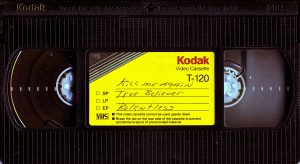As we near the end of July, many of us exert our final cognitive dash to make it to a well deserved vacation break. And in these last weeks, fully charging ourselves up for new and demanding mental tasks can feel…well, challenging. Almost as if they hurt our brain. If this sounds familiar, you might be happy to know that you’re not just imagining it. An interesting study focused on exactly this phenomenon: can tricky tasks make our brain hurt?
The result was an experiment with participants that basically boiled down to ‘Would you rather do a tricky task (in this case a memory exercise) or receive a painful heat shock (non-damaging to the skin)?’. The results were quite interesting:
“We were surprised to find that our participants often chose physical pain over the mentally effortful task. This suggests that people can perceive the costs of cognitive effort as high enough that they would prefer to experience physical pain rather than exert mental effort. In fact, this result appeared universal: nearly every person chose pain instead of the memory task at least once, with many choosing pain multiple times to avoid effort.
At higher levels of effort – ie, as the memory demands of the task increased – people were more willing to experience physical pain than to do the mental work required for the task. For the most difficult version of the memory task, our participants chose to feel pain (at some level) 60 per cent of the time, on average, but some of them actually opted for pain 100 per cent of the time.”
These kinds of experiments aim to understand how people trade off different types of aversive experiences. Or in other words, if the pain of an electric shock is worse than the ‘pain’ of having to do some hard thinking (interestingly, they have also done these kinds of experiments but with memory tasks swapped out for boredom, uncertainty, and more. Basically, people opt for pain a surprising amount of the time to avoid things they deem worse).
This does however pose a new question: if people go to such lengths to avoid demanding mental tasks, why do some people seem to seek out these tasks – or even enjoy them? The researchers compare this to running a marathon; it might not so much be the activity itself that feels rewarding, as it is the goal that makes it worthwhile, and feel rewarding. Additionally, they hypothesize that it also differs per person:
“There is actually an established personality trait known as ‘need for cognition’ that describes the variation in people’s preference for cognitively demanding activities. Akin to a runner ‘getting into the groove’ and enjoying a run after getting started, people higher in need for cognition are likely to find it easier to enter a state of ‘flow’, wherein a demanding activity comes to feel effortless, automatic and even enjoyable.”
So to take away something practical as well from this experiment: the researchers shared two concrete tips to make it easier to do cognitive heavy tasks: first of all, focus on the outcomes (the reason why you’re doing it) and finally, break down intimidating tasks into smaller chunks so they don’t seem so big and daunting.

Author
Douwe Knijff
Share the signal.











